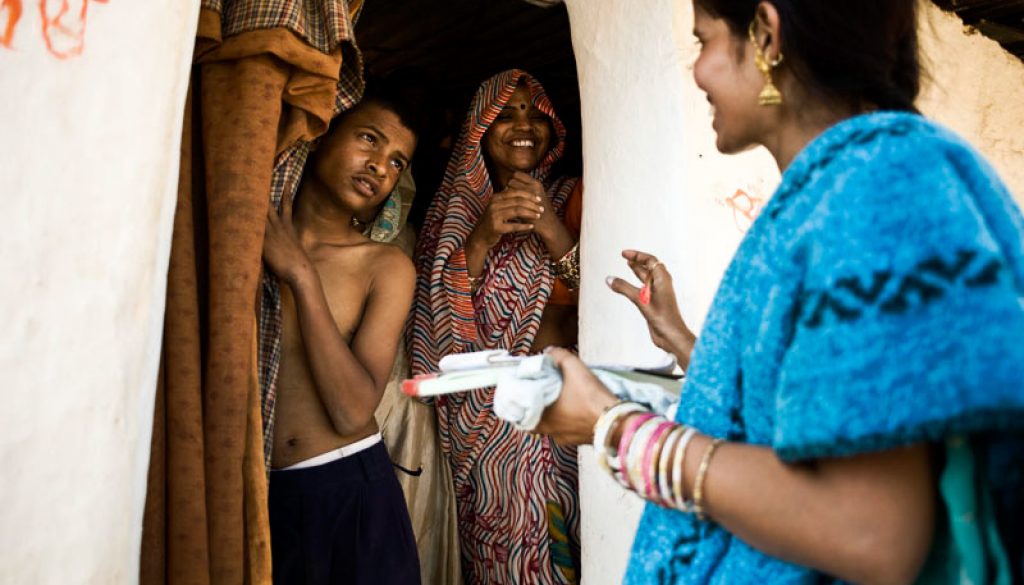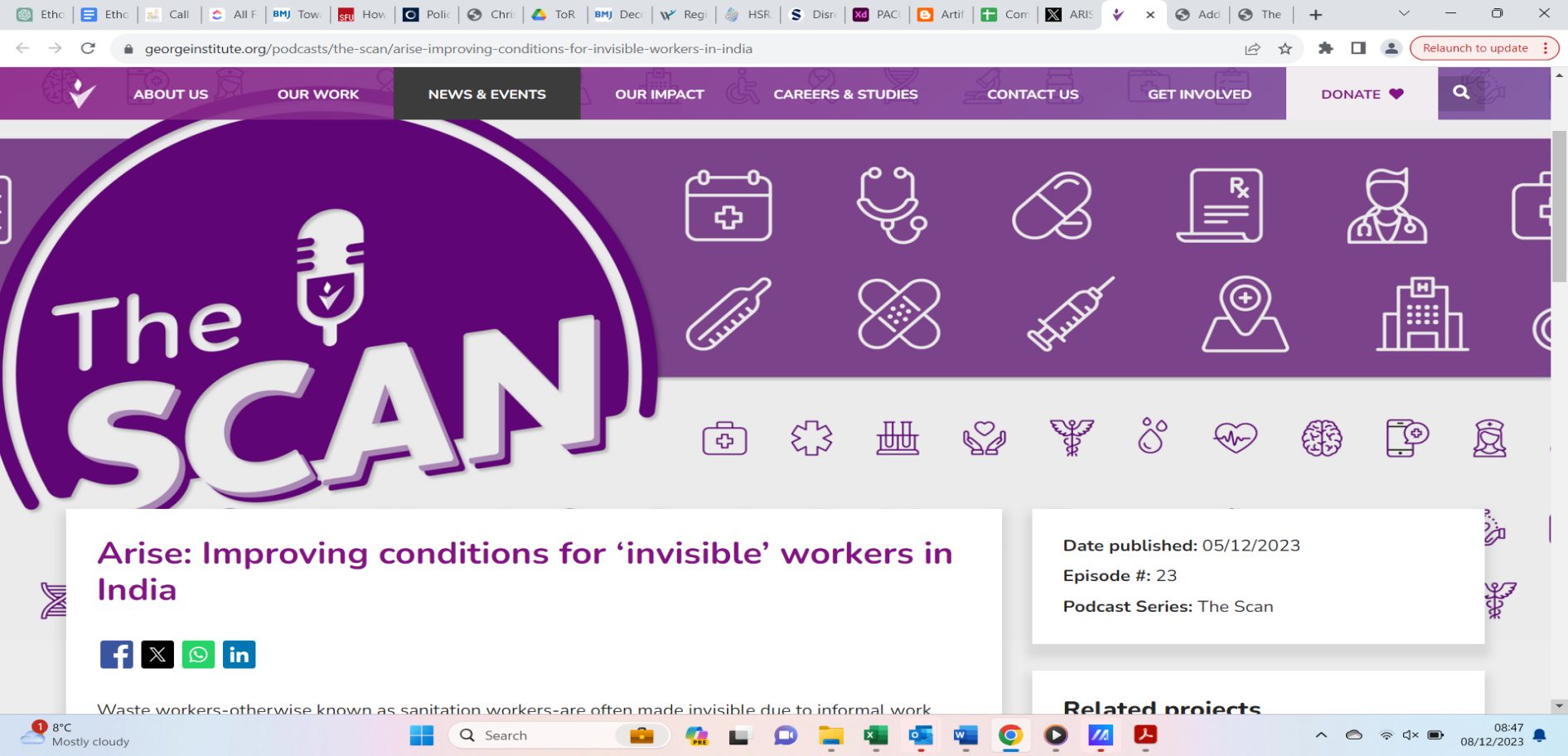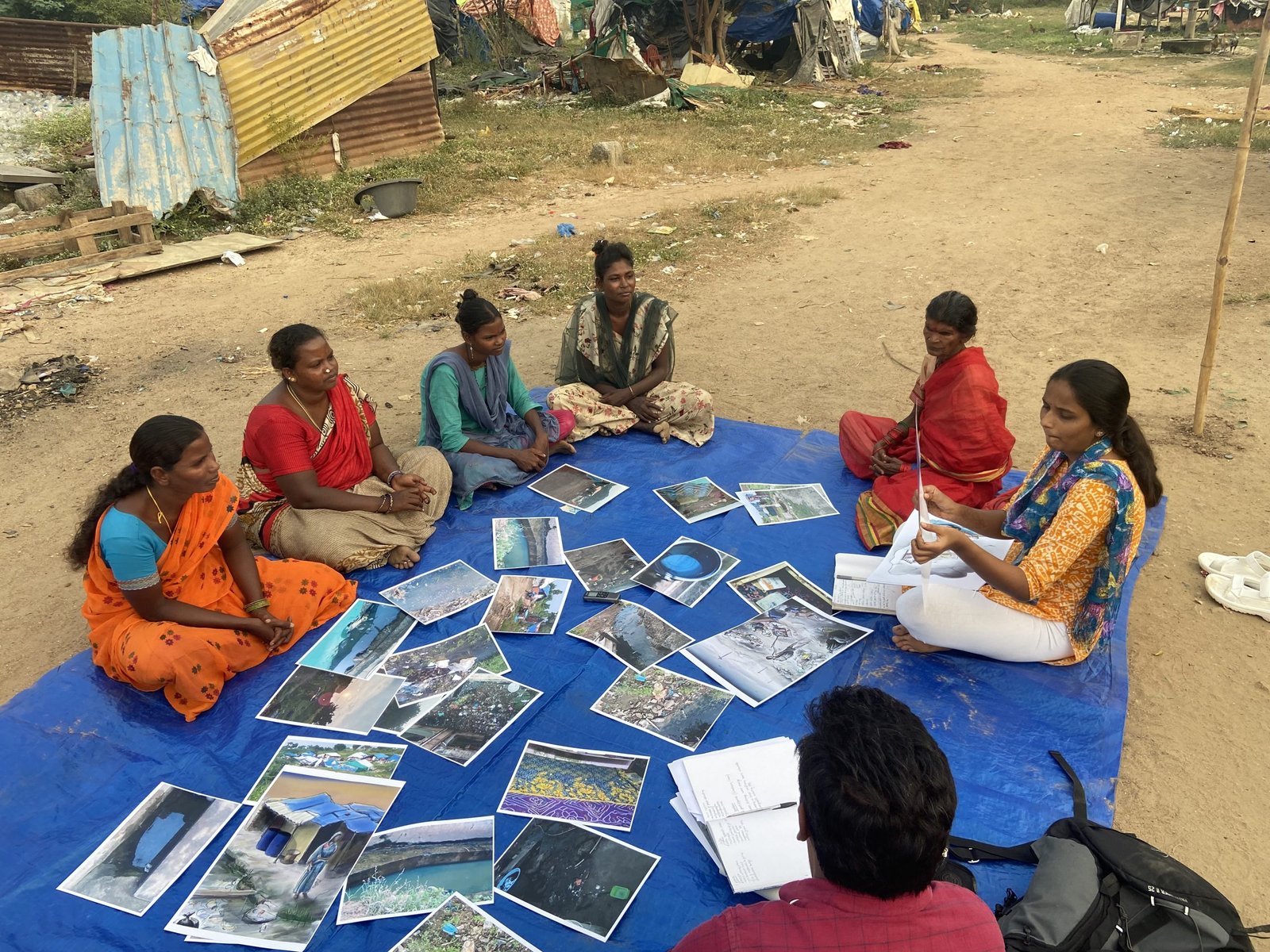India
General context
Although we know that tens of millions of Indian households live in informal settlements and that this is growing, we do not have accurate figures. The 2011 census, suggested that 13.92 million households lived in informal urban settlements – a growth of 37.1% over the previous decade. Or 93 million people according to Government of India (2010), Report of the committee on slum statistics/census, Ministry of Housing and Urban Poverty Alleviation. Either way soon the country will be predominantly urban.
Around half the ‘slums’ in India are not recognised by the government, they have ‘non-notified status’. This creates barriers to legal rights and basic services such as water, sanitation, and security of housing tenure. India’s cities have been called the ‘engine of the country’s growth’. But poor living conditions affect productivity and human capital development.
The urban poor are experiencing shrinking livelihoods and rising cost of living. Women and men bear the brunt of the additional work required to survive in different ways. Women’s labour to improve the health of the household, for example by collecting water and queuing for ration cards, is often unrecognised and undervalued.
Most households living in informal settlements have experienced direct state violence in the form of evictions. Pressure on land in cities is growing, partly due to climate change adaptation plans and increasing land value. This is likely to escalate threats of eviction in future as informal settlements are usually located in vulnerable environments, such as those at risk of flooding or landslides.
Health and social issues
Close living quarters, poor sanitation, and lack of access to drinking water are likely to drive ill health over and above the effects of simply being poor. Crowding, for example, tends to promote the transmission of infectious diseases. Other health problems include chronic and non-communicable diseases such as diabetes, related to poor diet, and mental health problems due to the stresses in an uncertain environment. These health challenges are exacerbated by the illegality and social exclusion experienced in informal urban settlements, poorly regulated and ineffective health services, exposure to environmental hazards, and a lack of clarity regarding which level of the Indian Government is responsible for protecting and promoting the health of the poorest urban residents.
One study that looked at health in non-notified and notified informal settlements in Mumbai found worse health outcomes in the non-notified settlements. This was also true for educational status and adult nutrition. It concluded that these citizens are ‘off the map’, invisible to government officials, and as a result denied access to basic services.
Governance
Urban governance in India tends to be complicated by the fact that government authorities often compete with non-state institutions that aim to govern access to and use of resources, such as land for housing, services, jobs and urban space, in more or less criminal ways. There are many state actors, including different levels and branches of local, municipal and national government. One of the major challenges for the urban poor is navigating this complex web of governance to gain access and entitlements to tenure, amenities and services.
Community mobilisation and action are vital to claiming rights. The National Slum Dwellers Federation (NSDF) mobilises the urban poor to come together, articulate their concerns and find solutions. Mahila Milan – ‘Women Together’ in Hindi – aims to provide a space for women to take on important decision-making roles. With support from SPARC (Society for the Promotion of Area Resource Centers), the NSDF and Mahila Milan identify what urban poor people can do to solve problems, and then demand state accountability in the areas where they cannot. Gathering key information is an important basis for establishing recognition and legitimacy: mapping informal urban settlements and developing collective knowledge of which services are available before negotiating with government agencies. Called the ‘Know your City’ campaign, this approach has been rolled out from India across a network of federations of informal urban settlement dwellers internationally, known as SDI.
Read more
Laura Nolan. Slum Definitions in Urban India: Implications for the Measurement of Health Inequalities. Popul Dev Rev. 2015 March ; 41(1): 59–84. doi:10.1111/j.1728-4457.2015.00026.x.
Subbaraman R, O’Brien J, Shitole T, Shitole, S, Sawant,K, Bloom DE & Gamble CJ. Off the map: the health and social implications of being a nonnotified slum in India. Environ Urban. 2012 October ; 24(2): 643–663. doi:10.1177/0956247812456356.
Posts on India

Video: Exploring the community-involved TB support program in Mumbai, India
In this interesting, new video learn about the program run by an alliance of SPARC, National Slum Dwellers Federation and Mahila Milan (a women’s savings collective) to support program those with TB and their families. This work was undertaken as part of the ARISE consortium’s work in India. [embedyt] https://www.youtube.com/watch?v=BXSIz2oXLAk[/embedyt]

The Scan Podcast: Improving conditions for ‘invisible’ workers in India
Waste workers-otherwise known as sanitation workers-are often made invisible due to informal work arrangements. In India, as in other parts of the world, sanitation workers tend to be from the oppressed and marginalized communities with little access to healthcare and quality health services. This despite, their work being highly important to society and exposing them […]

Photobook: Vector-borne diseases in waste picking communities in Andhra Pradesh
Waste pickers in India are extremely vulnerable to a range of health problems due to their poor living and unsafe working conditions, and struggle to access the health services they are entitled to. This research uses a community-based participatory research and focuses specifically on vector-borne diseases in two districts of Andhra Pradesh, exploring how they […]

Catalysing effective social accountability systems through community participation
Worldwide, infrastructure expansion and visions of ‘slum-free cities’ displace people living in informal settlements. Without community participation in these processes and accountability mechanisms in place’ such displacement can adversely impact people’s health and well-being. This piece outlines SPARC’s (Society For Promotion of Area Resource Centres, SPARC is an NGO based in India promoting action of […]